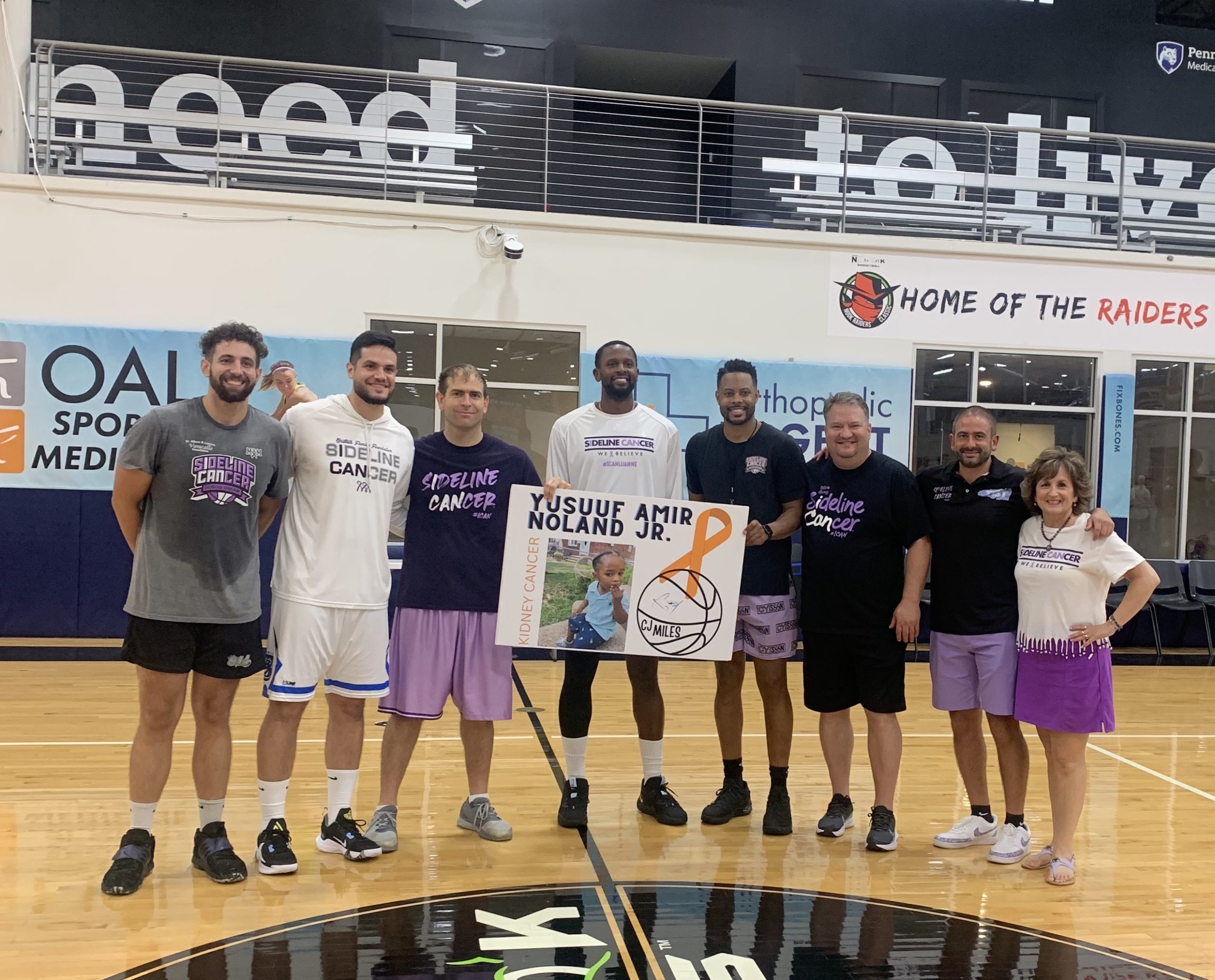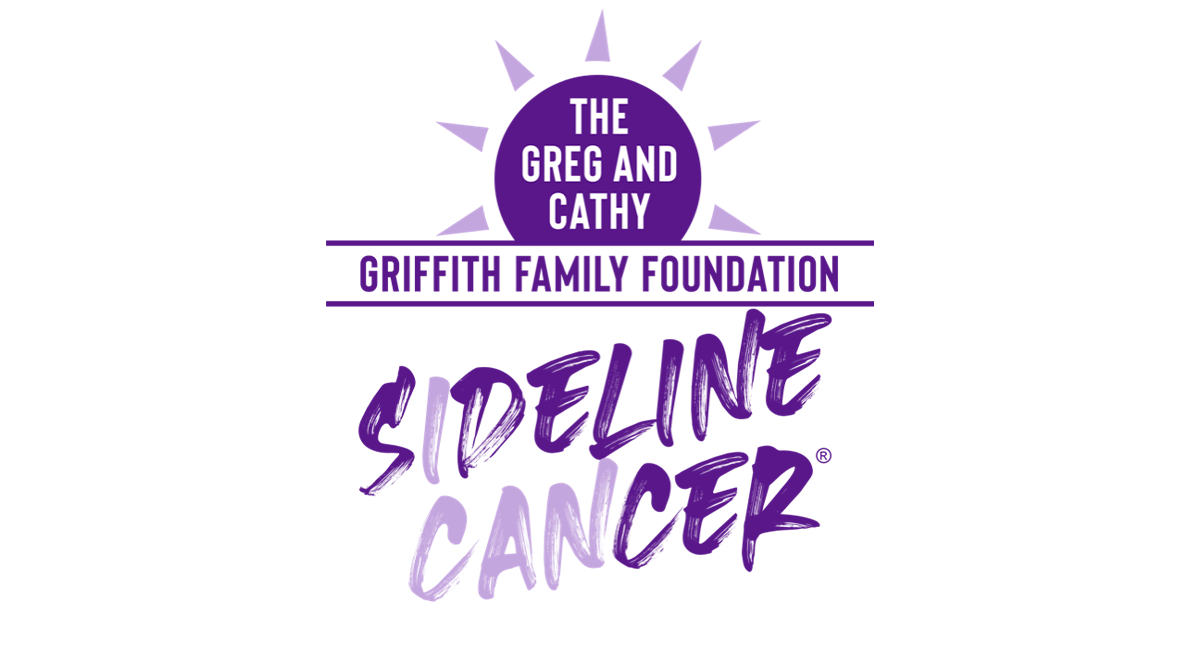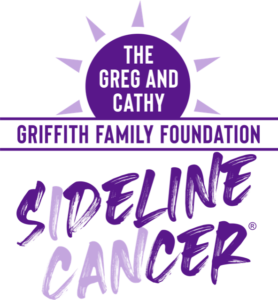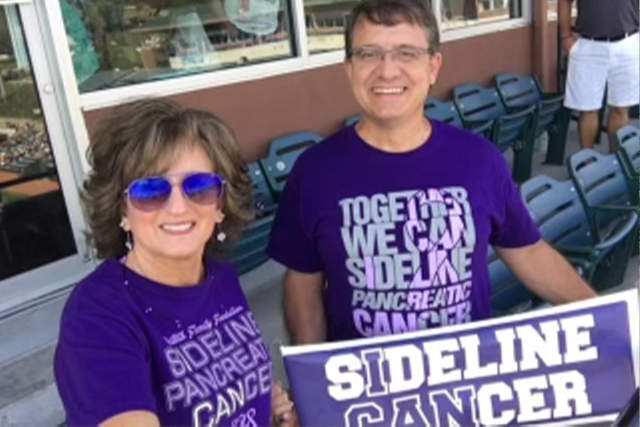
On February 5, 2010, Greg was diagnosed with stage IV pancreatic and liver cancer in the prime of his life. He was told that time was limited.
However, on hearing his diagnosis, he said to his doctor, Dr. A. James Moser, “What can Cathy and I do to help you?” The doctors were amazed to hear this question from a terminally ill patient.
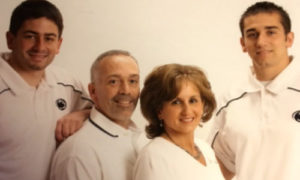
From there, a new trajectory for pancreatic cancer began. Instead of a medical tragedy, this event became the beginning of a very beautiful story.
God blessed Greg and his family with the gift of 19 miraculous months. Throughout this period, Greg made a tremendous difference in many people’s lives by being an example of how one can persist through intense hardship.
Greg Griffith’s legacy was his ability to lead and connect with people and communities. His legacy of love is a true manifestation of “I CAN” Sideline Cancer. It is the I CAN attitude and Believe Always Spirit he displayed that inspires students of every age to use their entrepreneurial spirit and philanthropic ideas to transform the outcome of pancreatic cancer.
The Origins of Sideline Cancer
The initial campaign slogan of the Griffith Family Foundation’s youth initiative was “Tackle Cancer.”
Through this initiative, hundreds of local students rallied to take part in a cause that was bigger than themselves.
In 2012, Cathy had the privilege of meeting the Intel Science and Engineer fair winner Jack Andraka.
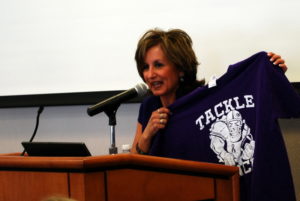
Cathy shared Greg’s story and told Jack about the energy building through the Foundation’s youth initiative. Jack expressed great interest in the effort and even volunteered to participate himself. However, he suggested that our original “Tackle Cancer” slogan was too limited.
Cathy’s son, who is a teacher and basketball coach, and another devoted teacher and family friend, came up with the slogan “Sideline Cancer.” Shortly after that, a student pointed out the “I CAN” within the slogan, which is what led the Griffith Family Foundation to officially trademark SIDELINE CANCER®.
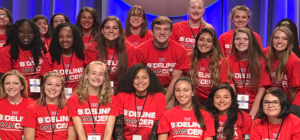
Jack Andraka went on to become the ambassador for Sideline Cancer and inspired many other students to believe that they can be a change in our world.
Today, Sideline Cancer is a fast-growing brand with over 17,000 t-shirts sold in it’s 11 year history.
Sideline Cancer and TBT
In 2014, as the Sideline Cancer message and t-shirts were quickly growing in popularity, an amazing opportunity presented itself. Lifelong friend and basketball coach Billy Clapper asked Cathy if he could put a Sideline Cancer basketball team together to participate in the inaugural The Basketball Tournament (“TBT”).
Because Greg was a lifelong fan of basketball, Cathy saw that getting involved with TBT would be a fitting way to honor Greg’s legacy and a great opportunity to raise awareness for pancreatic cancer.
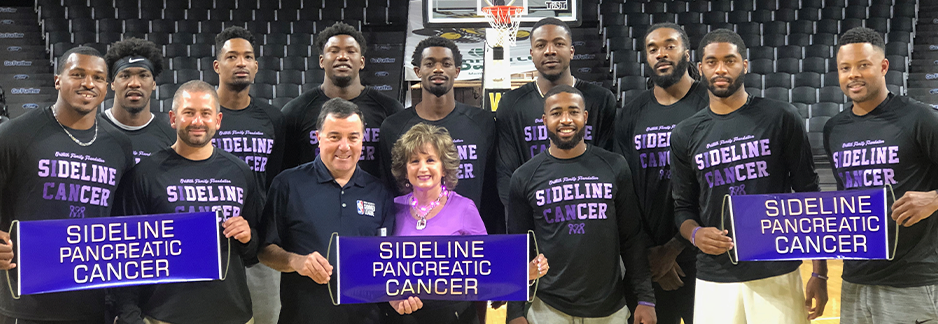
For the past 8 years, our Sideline Cancer TBT team has excelled on and off the court in raising awareness for pancreatic cancer. On the court, our Sideline Cancer TBT team went to the final in the very first COVID bubble tournament in 2020. Off the court, awareness for pancreatic cancer has grown, as TBT now airs in over 197 countries on ESPN.
The outstanding efforts of our Sideline Cancer TBT team has been the inspiration behind the formation of several Sideline Cancer AAU basketball teams. These next generations of basketball players are proudly wearing their purple with an I CAN attitude and Believe Always Spirit for all pancreatic cancer patients, families, and communities across the nation.
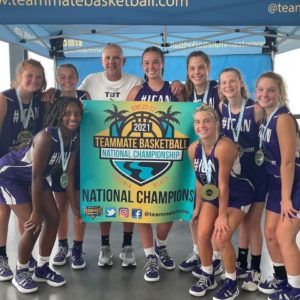
Connecting with Patients and Doctors
Many pancreatic cancer patients follow our basketball team and foundation activities. One such person is pancreatic cancer survivor, Rick Jones. On New Years Eve 2015, Cathy Griffith received a call from Rick Jones who told her, “I have Stage IV Pancreatic Cancer. Where do I go from here?”
Rick is an accountant in Bedford, PA and loving husband and father to three daughters. A friend of Rick’s knew of the Griffith Family Foundation and gave Rick Cathy’s cell number.
Once Cathy heard that Rick had Neuroendocrine Pancreatic Cancer, she immediately connected him to Dr. Moser at the Beth Israel Deaconess Medical Center at Harvard Medical School.
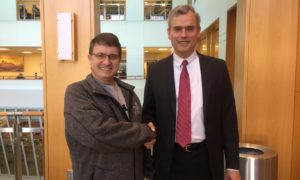
Appointments were quickly made, and Dr. Moser was able to surgically remove the pancreatic cancer. Dr. Moser was also able to refer Rick to UPMC Pittsburgh for a liver transplant (read more about that amazing story).
Today, Rick leads a normal and active life with his family and partners at his accounting firm. Although Rick is not considered “cancer free,” he is considered to be in stable/normal condition by his medical team and will continue to be routinely monitored.
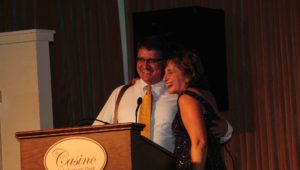
In 2015, Rick attended and spoke at our Sideline Cancer Dinner. In 2019, he participated as a panel member at our Pancreatic Cancer Symposium.
Helping to save Rick’s life is one of the greatest examples of how the Griffith Family Foundation and Sideline Cancer connect patients, doctors, and communities to sideline pancreatic cancer.
Where Pancreatic Cancer is Today
Interestingly, while Rick was undergoing treatment, he participated in a DNA testing study with the University of Washington in Seattle where they determined his gene sequencing. Doctors did gene sequencing for his entire family, including his mother and father, brother and sister, uncles and cousins.
In their examination, it was discovered that Rick was missing a particular gene in his sequencing.
From there, doctors looked at the entire population of Rick’s family to see if anyone else was missing the gene. This study is now being used to help many others.
As noted by Dr. Anirban Maitra at The University of Texas MD Anderson Cancer Center, the current national guidelines recommend that all patients with pancreatic cancer undergo genetic testing, not just those with a family history of the disease.

These studies show that nearly 10% of pancreatic cancer patients have an abnormal DNA alteration in their blood, and these tests are able to detect that abnormality.
This testing is important for two reasons:
- There are now treatments that patients themselves can benefit from because the treatments are tailored to some of these DNA abnormalities. These treatments are called “precision” or “personalized” medicine.
- If a patient has a DNA alteration in their blood, then all their blood relatives (siblings, children, etc.) can also get tested to see if they carry the abnormality. If they do, then they can get screened for pancreatic cancer and hopefully discover it early.
Since this genetic testing has become part of the guidelines, many insurance companies are paying for the test. Additionally, as the tests become more sophisticated, the cost of administering the test has been reduced from thousands of dollars just a few years ago to around $250 today. Also, these tests don’t require blood samples anymore. The tests are advanced enough to only require a patient’s saliva.
Where Sideline Cancer is Going
From 2010 through 2021, the Griffith Family Foundation has donated over $300,000 to pancreatic cancer research and raises awareness internationally.
The Greg and Cathy Griffith Family Foundation continues in 2022 to connect with communities all around the world through their ongoing memberships and support of the World Pancreatic Cancer Coalition and the Digestive Diseases National Coalition.
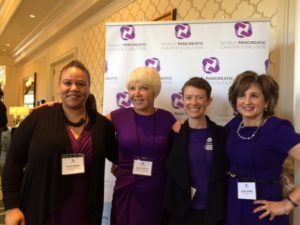
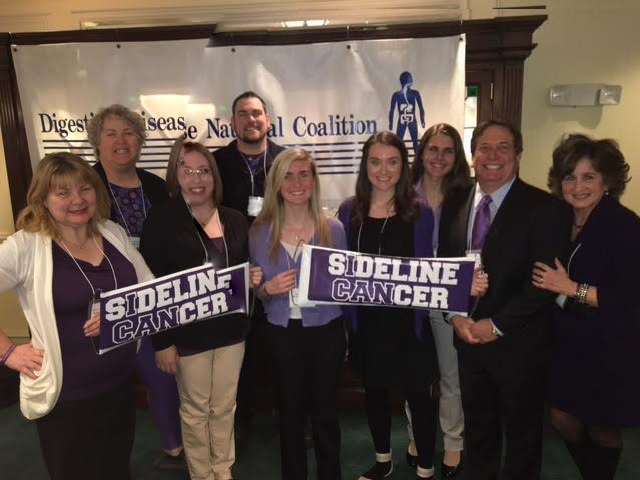
In the fall of 2022, The Griffith Family Foundation established Sideline Cancer Athletics.
